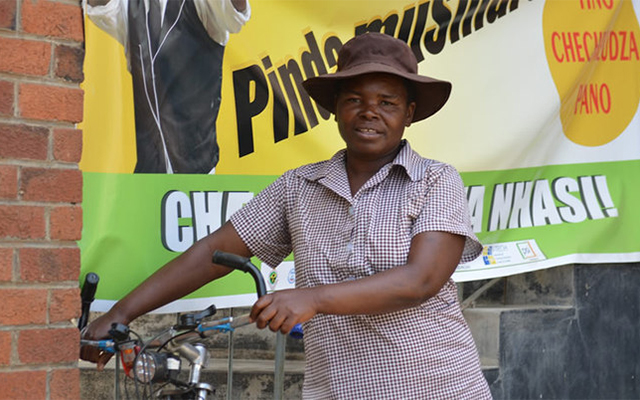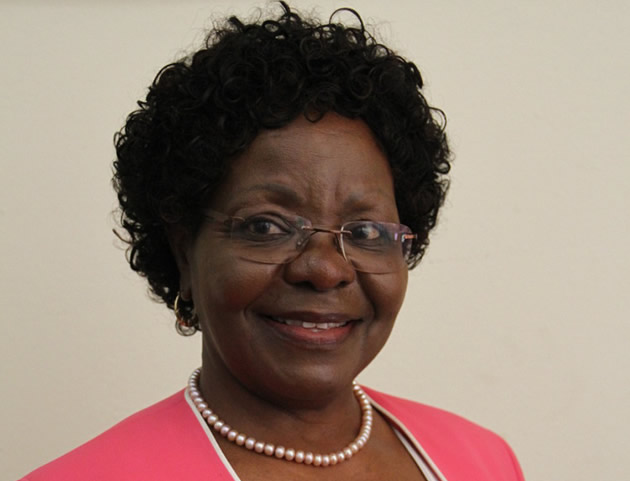CHWs: Bridge to TB treatment in community


Village health workers break barriers in accessing healthcare in rural Zimbabwe. – (Unicef Zimbabwe)
Hazvinei Mwanaka : Correspondent
Having been a village health worker for the past 12 years, 59-year-old Muzungu of Mhatiwa village in Chivi has touched the lives of many by dedicating her life to support the people in her community.A passionate worker who carries the burden of her community through her dedication and hard work, Muzungu has helped numerous tuberculosis (TB) patients in her village.“I received my training at Chibi rural in 2004. We were taught a lot of things. These included the need to educate the community about hygienic habits, such as building toilets, cleaning houses and yards, weighing children among other lessons,” she said.
She is in charge of six villages with more than 319 people. More have been relying on her for health information.
Muzungu says she has been imparting health information which she hopes will lessen the spread of communicable diseases.
Nurses at the local clinic provide her and other community health workers with a list of names of people who are HIV positive and some on TB treatment.
“Some people do not want their status to be disclosed, so we respect that. I then make door to door visits in the village, attending to them and making sure that they are taking their medication on time and constantly,” she said.
“Sometimes, I have cases when people are not feeling well for instance the person will be coughing, sweating, and having chest pains. I then refer the person to the clinic so that they can get tested.
“After the visit to the clinic we later visit the patient and if he/she has tested positive for TB, we assist by giving counselling and how to take the medication,” Muzungu said.
She added that they also educate family members who will be living with the patient on how to take care of the patient and assist with their medication.
Muzungu also noted that at times nurses at the clinic provide them with a list of people not adhering to their medication and they later follow up.
Community health workers are warmly embraced by the community in which they live in, they also reach vulnerable individuals such as the elderly, poor and the disabled.
Muzungu urged Government to equip them with more resources to help in their day to day work as well as support their own families.
“My wish is to see children going to school, parents being able to look after their children and mothers holding their babies and watching them grow,” she said.
The National TB programme with support from Challenge TB has just completed a knowledge, attitude and practises (KAP) survey which sought to assess the communities’ KAP towards TB and the results showed that CHW were chosen as a very reliable channel to relay TB information.
Country director of the International Union Against Tuberculosis and Lung Disease (The Union) Dr Zishiri said from October 2016, Challenge TB intends to support Community Based Organisations to train some thousand CHWs on TB prevention and control throughout Zimbabwe.
“The Union through the Challenge TB (CTB) funding model is building the capacity of community health workers (CHWs) so that they can conduct their duties effectively in the fight against TB. This is being done through the development of training materials and funding the training expenses of the CHWs,” he said.
He added that in 2015, CTB supported the engagement of a local paediatrician to develop a CHWs childhood TB training manual which is being used to train CHWs on the prevention, management and referral of children who are exposed to TB in their homes.
“So far 298 CHWs have been trained in Makoni district and from October 2016 this training will be rolled out throughout the country in a phased approach whereby CHWs from 12 districts will also undergo this training from October 2016 — September 2017 and CHWs in the remaining districts of Zimbabwe will be trained from 2018-2019,” said Dr Zishiri.
The deputy director of the HIV, Aids and TB Unit in the Health and Child Care ministry, Dr Charles Sandy said CHWs workers are playing an important role in making people come for TB screening and treatment.
“CHWs are actually referring people for TB services. In year 2015, 13 percent of TB patients notified in Zimbabwe were contributed by CHWs. Through their day to day visits in homes community health workers are able to identify individuals who may be in need of screening for TB so they will refer them to the nearest health facility,” he said.
He added that they will do so by writing some referral slip that will be handed to the staff at the health facility who will attend the individual.
“Each district in the country should have at least 120 village health workers (VHWs). However, this cannot be used as the number of community health workers since there many other types of CHWs apart from the village health workers that are providing services at community level,” he said
He added that CHWs have refresher courses monthly after their initial training and they also hold meetings with the local health facility staff where they are updated on new developments in TB care and treatment if need be.
CHW also play a key role in the fight against TB in other African countries like Namibia and Kenya just to name a few.
According to the United Nations Children’s Fund, Namibia has five cadres of CHWs whose work is helping to identify danger signs and referring patients to health facilities, in addition to long-term supervision of HIV/AIDS and tuberculosis treatment, which has proved successful.









Comments